

Read the previous part of this blog entry in Spiders, cactuses, and a scorpion.
And when I moved a big stone, it clearly showed that I was right about this being a Centruroides gracilis habitat. We saw two large adult brown bark scorpions running for cover, one male and one female.
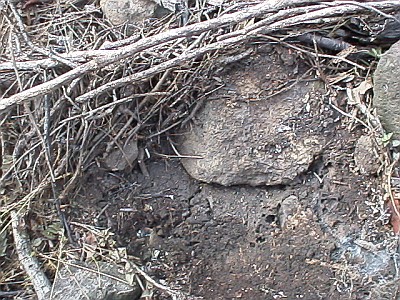
I first took some pictures of the habitat underneath the stone. Both the male and the female tried to hide between the dead twigs (top left of above picture).
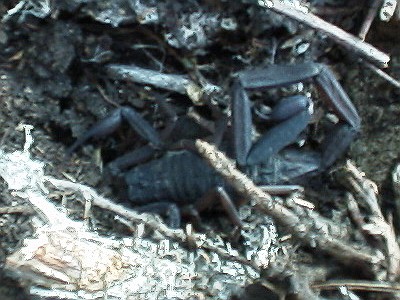
The female was well hidden, but I managed to make the male reapear and take a few pictures. Notice the length of each tail segment, they are much longer compared to those of a female (see picture more down on this page).
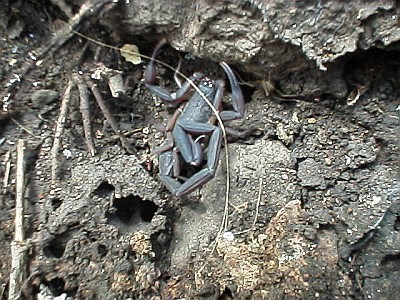
I moved the stone back in position. Since both scorpions were hiding out of the way, I wasn't afraid that moving the stone back was going to crush them. We walked a bit more, and then Esme found something I hadn't seen before: the skeleton of a cactus...
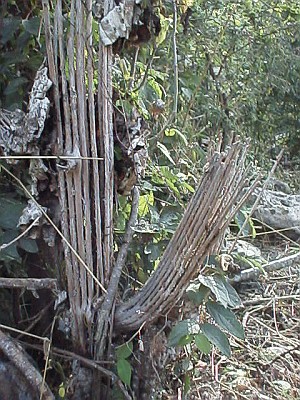
We looked under several more stones, and first I found another scorpion, and then Esme found a very nice female Centruroides gracilis. Notice how the tail segments are shorter and more fat compared to the tail segments of a male, above.
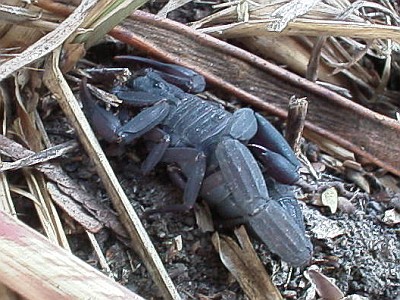
Every time we find a Centruroides gracilis in the wild, I try to have it walk on my hand. But since it's always during the day, this is probably not going to happen, since the scorpion will run for cover (it's nocturnal, and hence active during the night).

Also, note that the sting of a Centruroides gracilis can be very painful, so don't try this yourself unless you know what you are doing (maybe I shouldn't be doing this either ...). Anyway, no luck this time, the scorpion was not interested, so I put the stone Esme had found the female scorpion under back into its place.
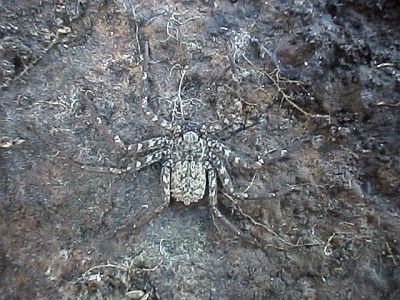
We walked and kept looking under stones. Under one I found an arachnid I didn't recognize. I took a picture, and hope someone can give an identification.
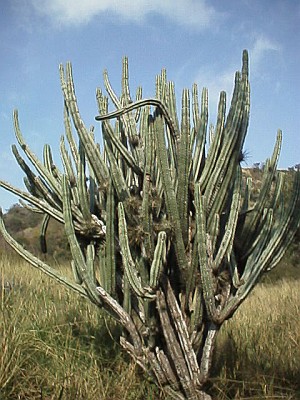
Read the next part of this blog entry in Adult tarantula spiders at last.